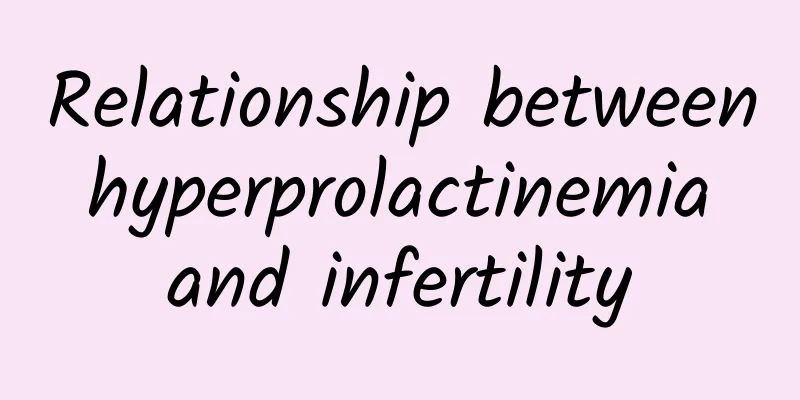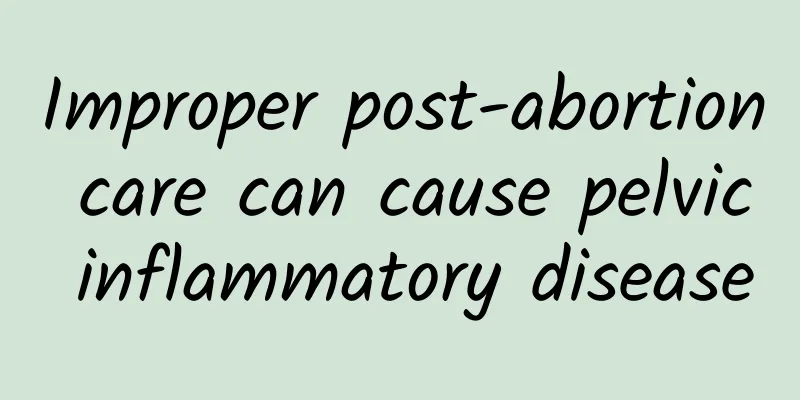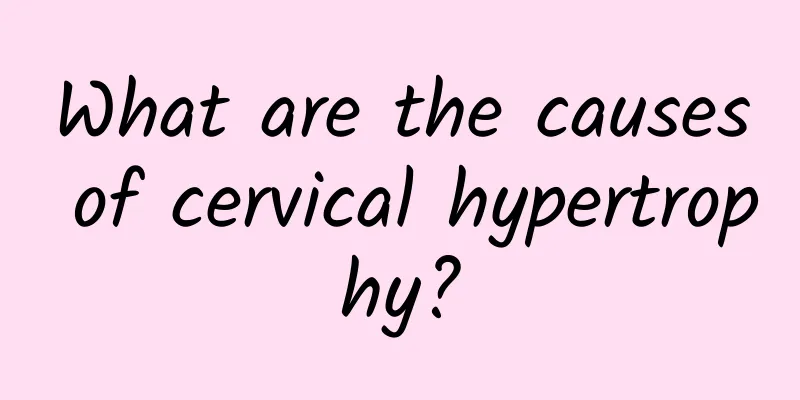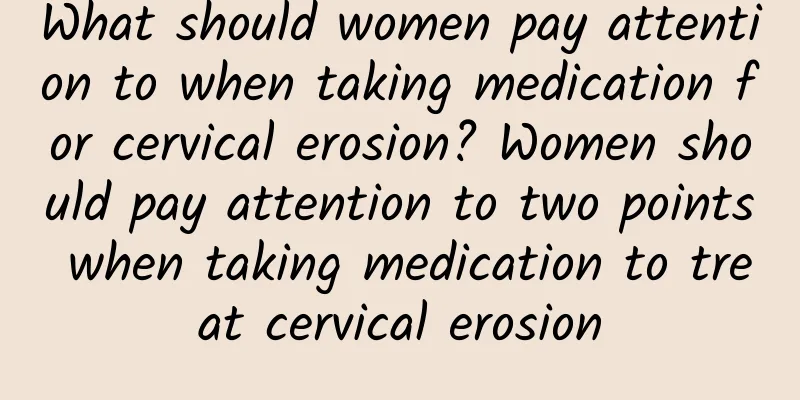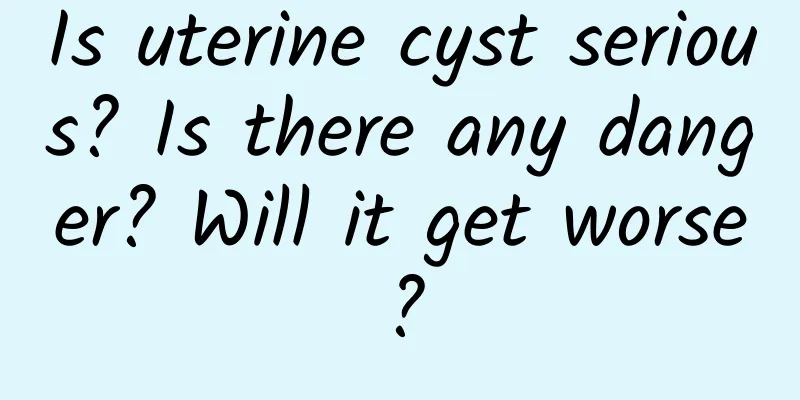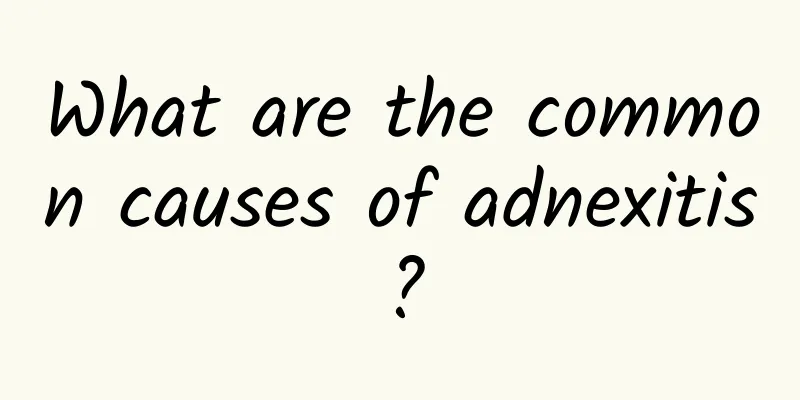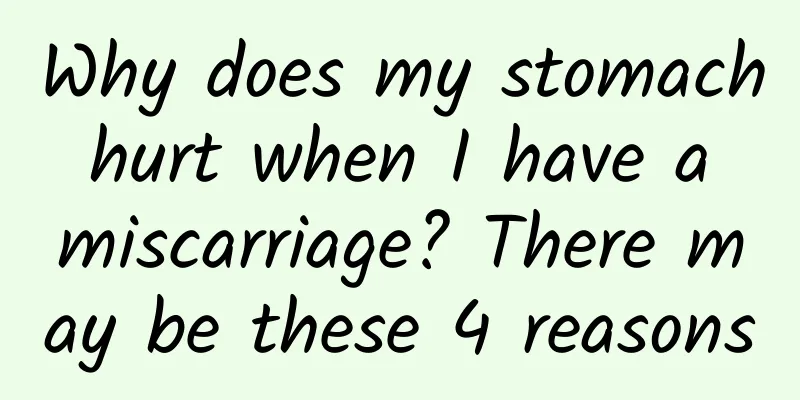What to do if you have heavy menstrual flow due to uterine fibroids? Three nursing measures to keep in mind
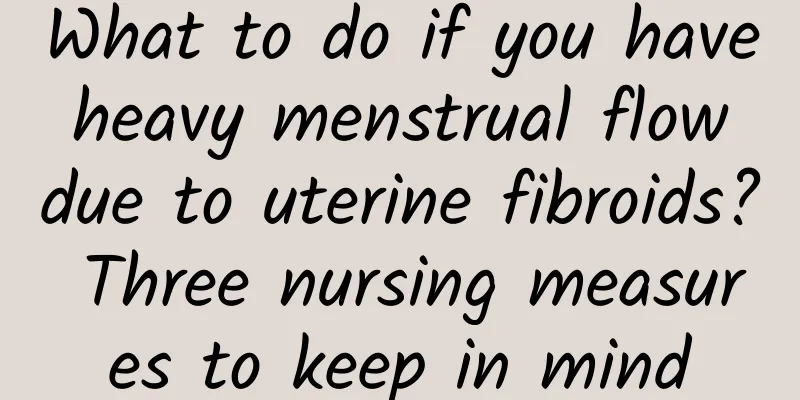
|
If the problem of heavy menstrual flow caused by uterine fibroids is not serious, no special treatment is required, but regular follow-up observation is required. Appropriate drug treatment can also be used, generally drugs that antagonize estrogen. If the condition is too serious, surgical treatment can be considered, including myomectomy and hysterectomy. Uterine fibroids can cause a variety of adverse symptoms, one of which is excessive menstrual flow. Some patients have more serious conditions, and they bleed a lot a few days before their period. Due to excessive blood loss, patients may experience anemia. So what should I do if my menstrual flow is excessive due to uterine fibroids? |
<<: How long does uterine fibroid surgery take? 4 factors affect uterine fibroid surgery
Recommend
Do you know the symptoms of severe cervicitis?
Severe cervicitis is a chronic pathological proce...
Comparison of the main causes of clinical pelvic inflammatory disease
The cause of pelvic inflammatory disease is relat...
What are ovarian cysts and what are their symptoms
In recent years, with the improvement of living s...
What symptoms will women experience after suffering from ovarian cysts?
Ovarian cysts are a more difficult gynecological ...
What is the cure rate of hyperprolactinemia?
What is the cure rate of hyperprolactinemia? In f...
What are the nursing measures for ectopic pregnancy in life?
Ectopic pregnancy is quite common in life. In fac...
What are the treatment methods for female cervical erosion? Traditional Chinese medicine teaches you how to treat cervical erosion
Cervical erosion is a very common cervical diseas...
What are the symptoms of endometriosis diagnosis?
Female friends with endometriosis should be diagn...
Irregular menstruation and still can't get pregnant
If you have irregular menstruation and have not b...
Why do uterine fibroids grow during pregnancy? What should I do if uterine fibroids grow bigger during pregnancy?
Why do uterine fibroids grow larger during pregna...
Rumor on the Internet: Will calcium deficiency increase fat and cause obesity? Pharmacist: A comparison of three major categories of calcium supplements
Do you often suffer from insomnia and short tempe...
Appetite is easy to lose control in autumn. 3 tips to eat midnight snacks without gaining weight
Autumn is here, and as the nights get cooler, our...
What are the causes of recurrent pelvic inflammatory disease?
"What are the causes of recurrent pelvic inf...
What should women pay attention to after suffering from vaginitis
Vaginitis is a common gynecological disease among...
A little helper for weight loss! Japanese-style grilled eggplant with high potassium content reduces edema
Losing weight is a lifelong goal for many people,...
